Glen Cove NY, 17-19 June
Global Economic Outlook, June
SDG #8: Decent work and economic growth
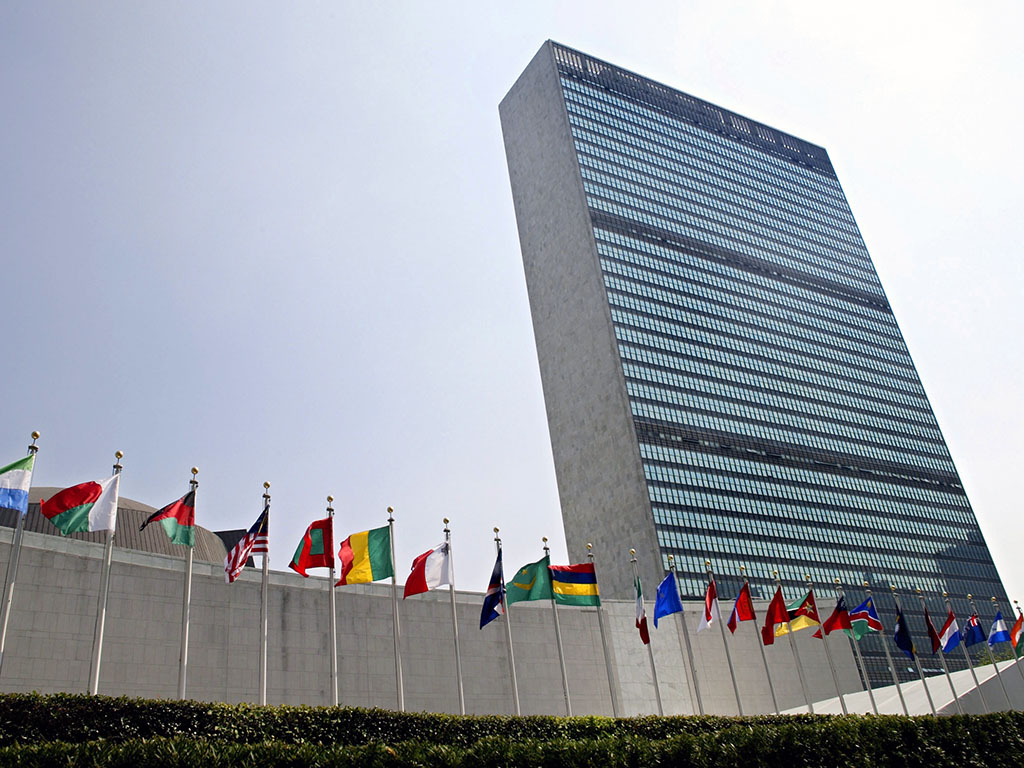
Carbon pricing is a vital policy tool to address the unfolding climate crisis
Amid rising global temperatures, drought forces Australia to import wheat for the first time in a decade
Debt-for-climate swaps are an innovative?development financing instrument
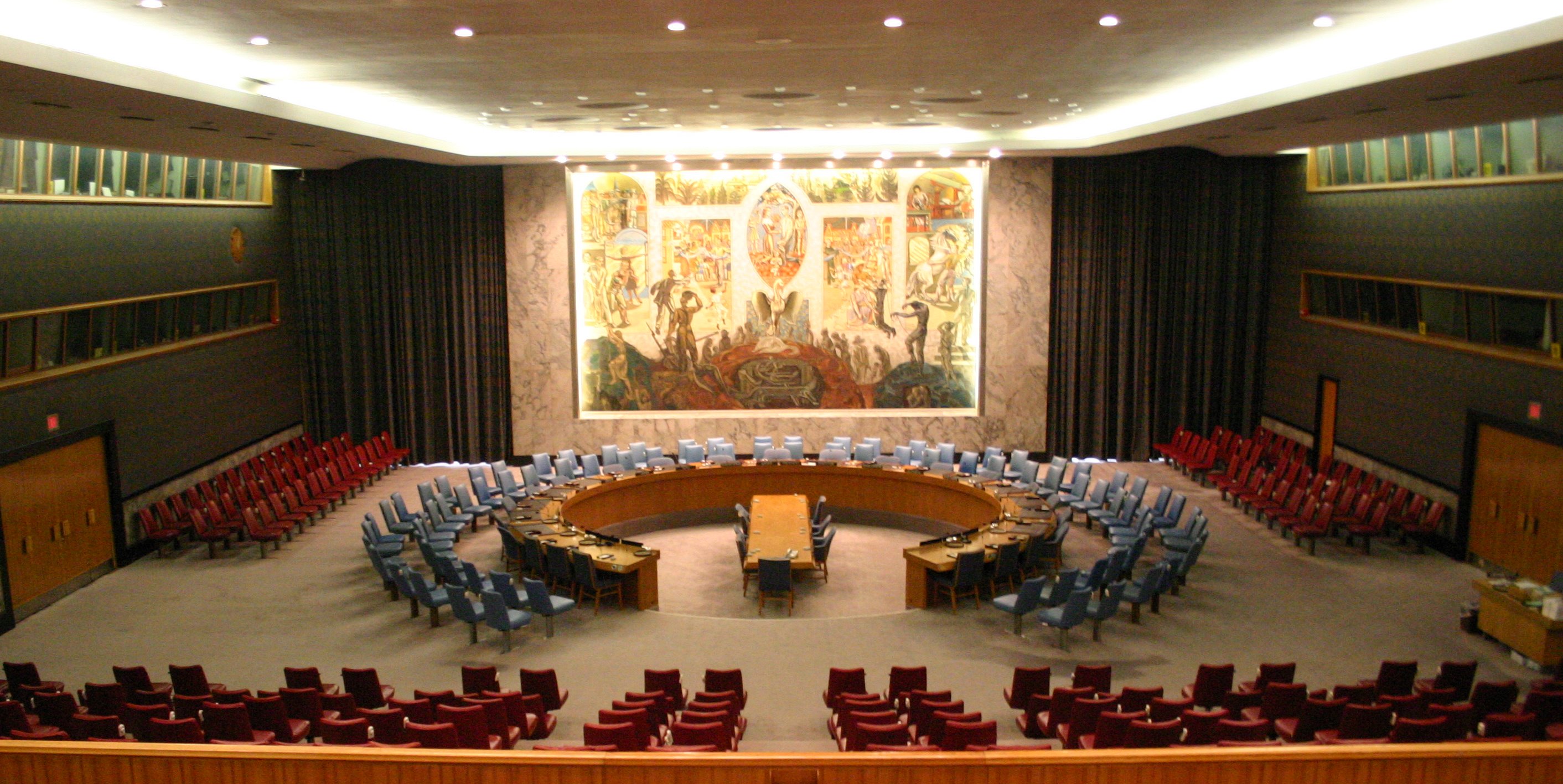
ODA flows must increase to support SDG-related investment
Regional integration in Africa and Asia is crucial for sustainable development
China?s direct investment in Latin America slows
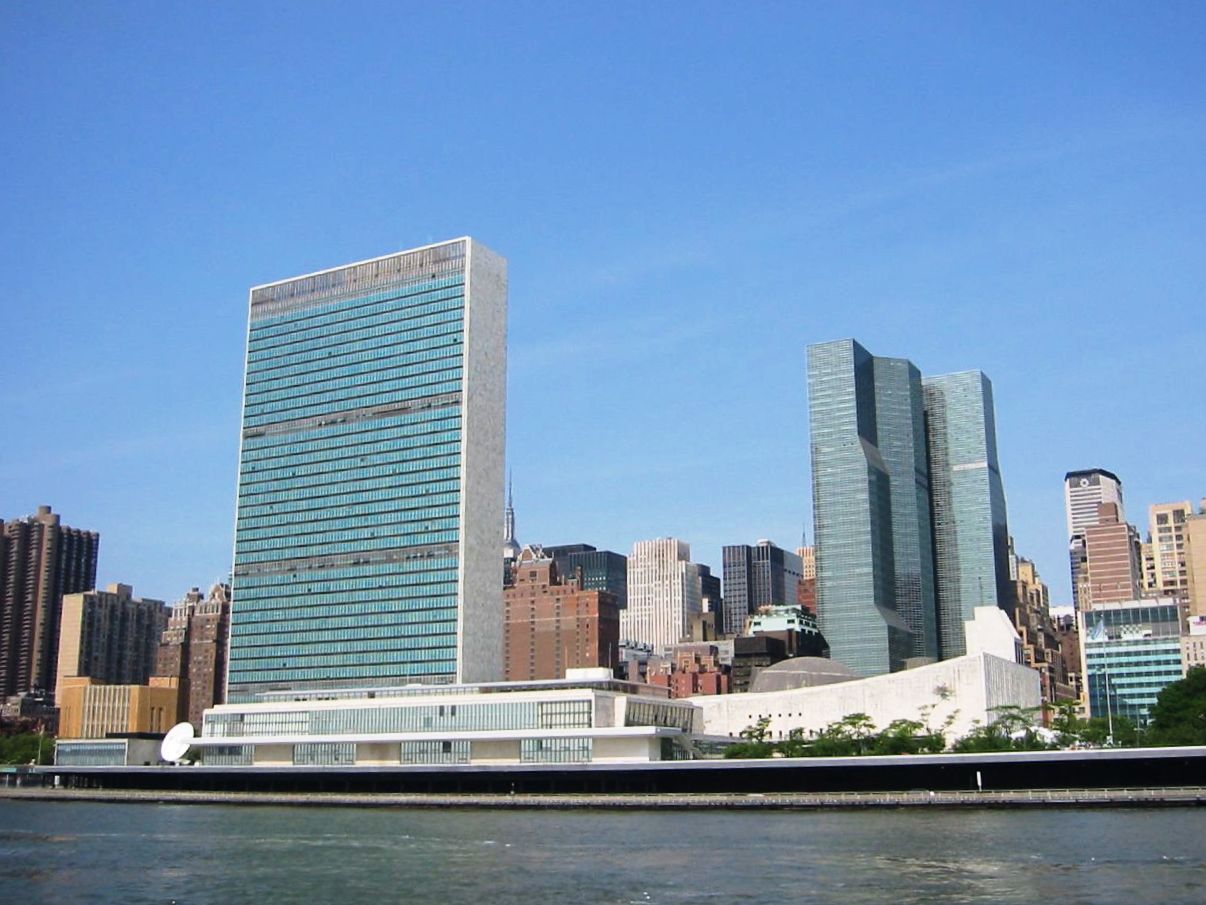
Trade tensions and policy uncertainty are damaging global growth prospects
Several countries continue to experience setbacks in their fight against poverty
Carbon pricing a key element in combating climate change
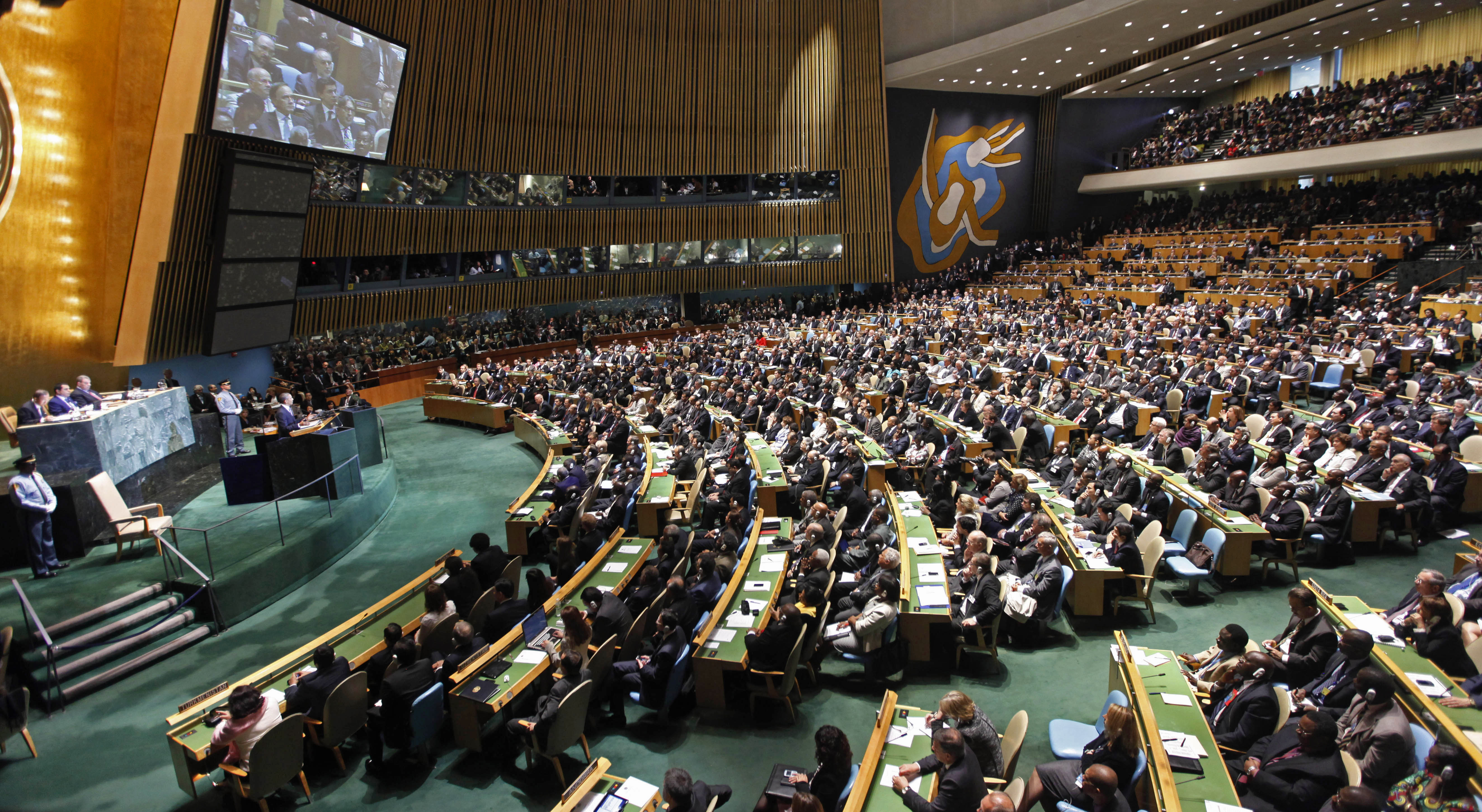
Global growth outlook has weakened, amid unresolved trade tensions and elevated international policy uncertainty, according to the World Economic Situation and Prospects as of mid-2019. Across both developed and developing countries, growth projections for 2019 have been downgraded.?

Genetic technologies?the ability to manipulate and transform the properties of cells, seeds, microbes, insects, plants, animals and even humans?are pushing the frontiers of science and offers us new hope for disease control and cure. Genetic technologies are changing the way we produce food, improving crop yield and preventing catastrophic losses from droughts, floods and pests.
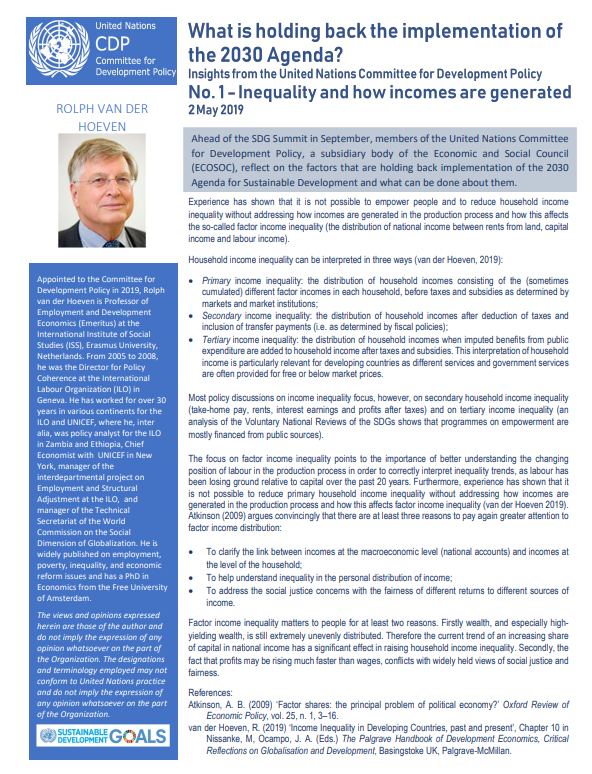
Rolph van der Hoeven discusses inequality and how incomes are generated.

Experience has shown that it is not possible to empower people and to reduce household income inequality without addressing how incomes are generated in the production process and how this affects the so-called factor income inequality (the distribution of national income between rents from land, capital income and labour income).

Many developed and developing economies take an easier monetary policy stance
VAT increase in the Russian Federation temporarily adds to inflation
Argentina imposes price controls to curb inflation
 Welcome to the United Nations
Welcome to the United Nations